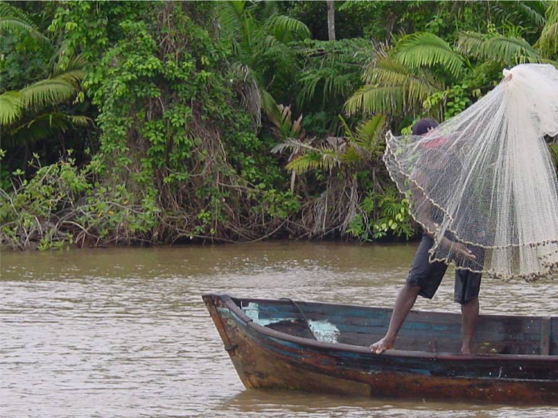First published on 10/11/2014, and last updated on 03/11/2018
By: Vivienne Solis Rivera, Steering Committee Member
The ICCA consortium was invited to participate in the CDB Expert workshop that discussed Marine Spatial Planning (MSP) in the CDB framework in 9-11 September 2014 in Montréal, Canada. The objectives of the meeting were to provide consolidated practical guidance for marine spatial planning to the CDB State members, which will include sharing experiences from different regions, strengthening capacities, helping countries to use the existent experience and to integrate the tool to the EBSAs process.
The meeting opened with the welcoming words of Mr. Braulio Ferreira de Souza Dias, SCBD Executive Secretary, who mentioned that the Conference of the Parties in Republic of Korea (6-12 October) will be having a strong interest towards marine issues. “There will at least be 7 spaces to discuss Ecologically of Biologically Significant Marine Areas (EBSAS) all over the world and this will give more importance to the discussion on marine spatial planning, the subject of our workshop.”
Marine Spatial Planning, in the context of the CDB, is particularly linked to the ecosystem approach and to the precautionary principle. Thus, the CDB programme calls for the implementation of integrated marine and coastal area management and marine and coastal living resources conservation through the use of the Aichi Biodiversity Targets and the Strategic Plan for Biodiversity 2011-2020.
The expert meeting in which the ICCA Consortium also participated was attended by experts from Albania, Australia, Barbados, Belgium, Cameroon, China, Colombia, European Union, Germany, Iceland, Mexico, Mozambique, Palau, Peru, Philippines, Seychelles, United States of America, UNEP Division of Environmental Policy Implementation (UNEP/DEPI), GEF Scientific and Technical Advisory Panel (GEF-STAP), UNEP World Conservation Monitoring Centre (UNEP-WCMC), Duke University, Global Ocean Biodiversity Initiative Secretariat (GOBI), International Union for Conservation of Nature (IUCN), The Nature Conservancy (TNC), World Ocean Council, World Wildlife Fund (WWF) and an observer from Brazil.
Prior to this meeting, the Secretariat of CDB had conveyed, a prior workshop in Cambridge that dealt with the implementation of MSP and a study on the application of the tool.
Towards the COP and Marine Spatial Planning (Decision X/29) the workshop experts:
•Invites Parties and other governments to increase efforts to apply marine spatial planning tools.
•Emphasizes that additional workshops are likely to be necessary for training and capacity-building of developing country Parties.
•Invites Parties and other governments to share experiences related to integrated management of marine resources and the implementation of marine and coastal spatial planning instruments.
•Invites Parties and other governments to disseminate awareness-raising materials on marine spatial planning.
•Invites Parties and other governments to organize training workshops.
The Cambridge workshop identified governance as a priority issue in discussions, as well as the challenge of all stakeholders’ participation in MSP. During our meeting in Montréal, cases of MSP from New England (USA), Belgium, Colombia, the Philippines and Seychelles were presented as illustration, and emphasized the need of an integrated approach, a legal basis procedure, competent authority.
The meeting also pointed at a key role of data, of transparency and participation, of the diversification of the area uses, and of a long term vision as well as the importance of monitoring and evaluation. Furthermore, the well-being of local population, the use of traditional knowledge systems and the fact of remaining open to local needs as water sanitation, healthcare and education levels were presented as additional key elements.
The discussion focused on the issues below:
- Facilitating cross-sectorial coordination and decision-making in the development and implementation of marine spatial planning;
- Integrating the various interests, needs and perspectives of stakeholders throughout the planning and implementation process;
- Utilizing the best available scientific information, including scientific assessment and monitoring, in planning and decision-making;
- Linking spatial mapping of species, habitats and ecosystems as well as human activities, uses, and pressures, to planning and decision-making; and
- Addressing capacity gaps and resource needs to ensure effective implementation and sustainability of marine spatial planning.
The ICCA Consortium carried, during this meeting, the clear mandate of incorporating local community and indigenous peoples’ knowledge, of recognizing their rights and views while developing any planning for the conservation or use of marine resources. We stressed the need to recognize local governance of these resources and to generate new knowledge that includes local and traditional knowledge.
The final recommendation document to the CDB Parties will soon be shared by the CDB Secretariat on internet. http://www.cbd.int/doc/?meeting=MCBEM-2014-04
